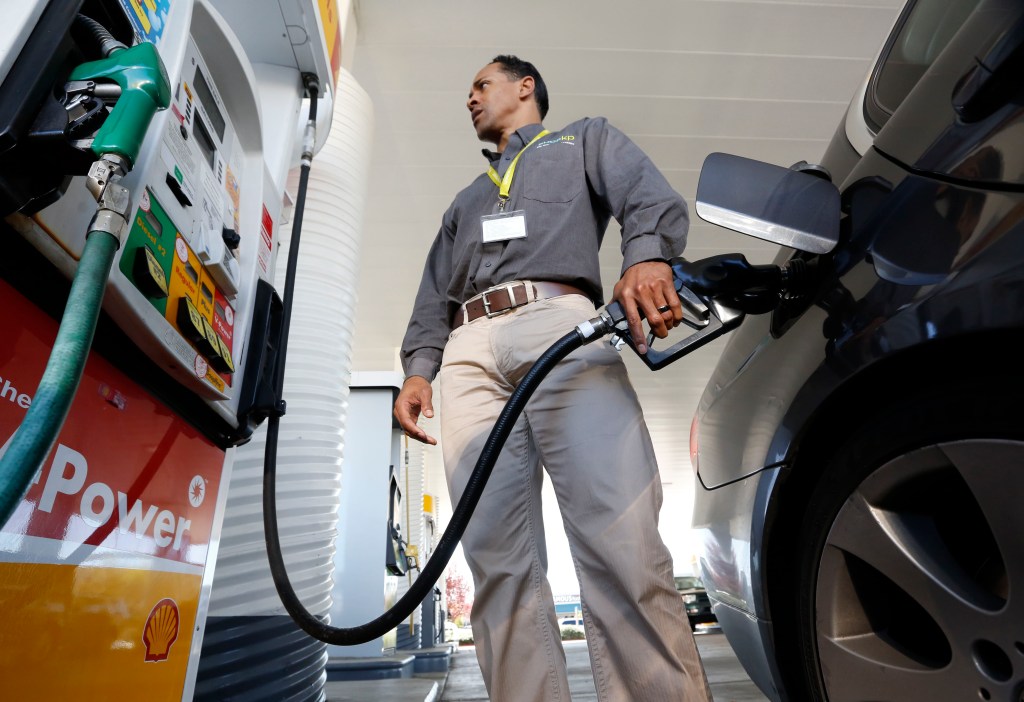It’s been over 20 years since Congress last boosted the federal levy on gasoline – eating into the funds available to keep up roads and bridges. Faced with decaying infrastructure and lack of federal money to repair it, states around the U.S. have forged ahead, raising fuel taxes in order to boost spending on road maintenance. Their experiences should guide the forward-thinking Maine legislators who are now mapping out a route for passing a gas tax hike here.
The last federal gas tax increase was approved in 1993, under President Bill Clinton, when the levy was raised by 4.3 cents as part of a deficit-reduction package that got no Republican support whatsoever. The next year, Democrats lost control of the U.S. House for the first time since 1954. It was a lesson that wasn’t lost on lawmakers of either party: Don’t even think about raising the gas tax.
But this kneejerk resistance hasn’t carried over outside Washington. In 2013, Wyoming enacted a 10-cent gas tax hike; since then, 15 other states – both Republican- and Democratic-led – have followed suit.
The voter blowback has been relatively minimal. Legislators who’ve voted for gas tax hike generally haven’t been hurt politically. That’s because voters appreciate that money raised by their state’s gas tax stays at home. Also, this isn’t a political issue: No matter what party someone belongs to, they can’t get to work, travel or transport goods unless the roads and bridges in their area are safe and well maintained.
As Edward Lindsey, a former Georgia Republican legislator who served on a state panel that proposed the increase there, told Pacific Standard magazine in 2015: “This is a core government function – if we can’t do roads and schools and public safety, what’s the purpose of government?”
Now the issue is hitting home in Maine, where legislators told the Maine Public Broadcasting Network recently that savings from Maine Department of Transportation efficiencies and streamlining aren’t enough to fund the $168 million in roadwork needed statewide.
Despite these infrastructure needs, Maine effectively cut its gas tax in 2011 by ending automatic increases tied to inflation.
Both Republicans and Democrats on the Transportation Committee are now weighing their options for increasing road repair revenues, such as a temporary gas tax hike, or an increase that’s tied to the price of fuel.
A 5-cent-a-gallon gas tax hike could generate about $35 million in additional funds for road repairs, state Rep. Andrew McLean, D-Gorham, who co-chairs the panel, told MPBN. That nickel increase would cost the average driver $25.80 annually, the left-leaning Institute on Taxation on Economic Policy has estimated.
Compared to the nearly $300 a year that the average Maine motorist pays for additional vehicle repairs because of poor road conditions in our state, that’s a bargain. And given how critical good roads and bridges are to the well-being of Maine’s residents and its economy, it’s one we can’t afford to pass up.
Copy the Story LinkSend questions/comments to the editors.



Success. Please wait for the page to reload. If the page does not reload within 5 seconds, please refresh the page.
Enter your email and password to access comments.
Hi, to comment on stories you must . This profile is in addition to your subscription and website login.
Already have a commenting profile? .
Invalid username/password.
Please check your email to confirm and complete your registration.
Only subscribers are eligible to post comments. Please subscribe or login first for digital access. Here’s why.
Use the form below to reset your password. When you've submitted your account email, we will send an email with a reset code.